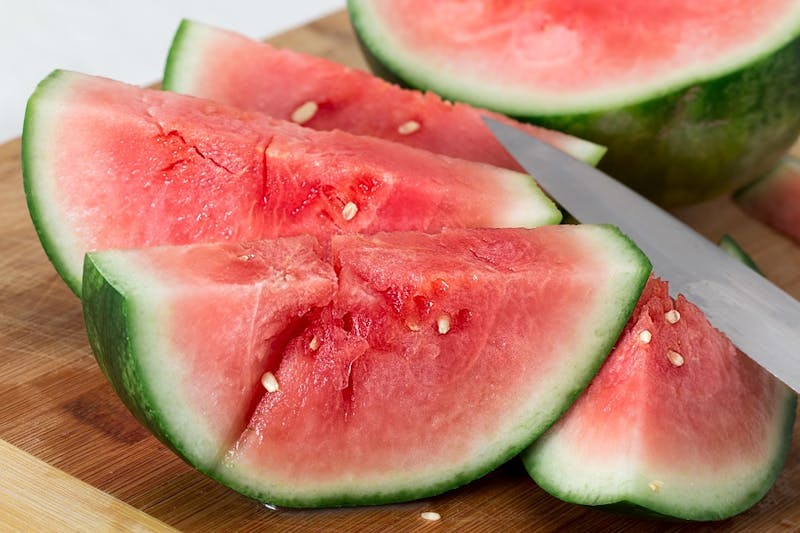
Watermelon has become an unofficial mascot of summer. It’s almost impossible to go to a picnic or a barbecue without seeing the juicy red fruit as part of the spread. You might choose watermelon because it tastes refreshing and delicious, but did you know that the melon also provides some remarkable health benefits?
1. It’s hydrating.
We know that drinking water prevents dehydration, which is especially important during these summer months; but did you know that eating foods with a high water content can also help keep you hydrated? Not only that, foods with a higher water content help keep you full.
Although there is a slight variation, most sources agree that watermelon is somewhere between 90 and 92 percent water, making it one of the most water-packed foods you can eat.
2. It’s low in calories, but packed with nutrients.
Because of its high water content, watermelon is low in calories, but don’t let that fool you. The summer fruit is a powerhouse of nutrients. A cup of cubed watermelon contains:
- 17 percent of your daily vitamin A
- 21 percent of your daily vitamin C
- 5 percent of your daily potassium
- 4 percent of your daily magnesium
- 3 percent of your daily vitamins B1, B5, and B6
and the antioxidants lycopene and cucurbitacin E, which help fight inflammation and chronic disease.
3. Watermelon might combat cancer.
Watermelon is one of the richest source of lycopene, a phytochemical that’s responsible for the fruit’s red color. Studies have shown that lycopene may help prevent and treat prostate cancer, although no official conclusions have been reached. In addition to combating cancer, lycopene can help improve heart health and bone health. One cup of watermelon contains 7 to 10 milligrams of lycopene. Other sources of lycopene include tomato, red grapefruit, and guava.
4. It can improve heart health.
Watermelon contains an amino acid called citrulline, which converts to another amino acid — arginine — in the body. Both of these amino acids can help improve circulation and blood flow, two factors that are important for the health of your heart. A study done in 2012 found that taking watermelon extract supplements may even help reduce high blood pressure.
5. It may reduce muscle soreness.
In addition to helping your heart, the improved circulation and blood flow from the amino acids citrulline and arginine may also help soothe muscle soreness. In a study published in the Journal of Agricultural Food and Chemistry, researchers reported that athletes who drank watermelon juice before a hard workout experienced a lower heart rate and reduced muscle soreness the next day.
And aside from these health benefits, simply put, watermelon tastes great! What is your favorite thing about watermelon? Are you a fan of the summer treat?

